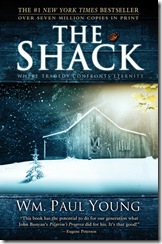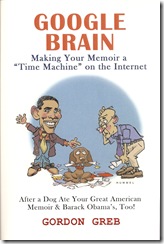
A speed reader whipped through Tolstoy's "War and Peace" in just a few minutes. Startled, a friend said, "Wow! That's amazing! So what's the book about?" "It's about Russia," replied the speed reader.
I didn't speed-read "The Shack" ($14.99 in paperback from Windblown Media) by Wm. Paul Young. Yet the visceral impact the novel produced left me tongue-tied as I followed Mackenzie Allen Philips ("Mack") into the old shack where his youngest daughter had been gruesomely murdered. What's the book about? Well, it's about God.
Young takes the reader into every parent's worst nightmare but also beyond. In Mack's experience the shack is transformed into a meeting place with the Trinity: Papa (an African-American woman), Jesus the carpenter, and an Asian woman, Sarayu (the Spirit). How can God love Missy, Mack's six-year-old daughter? How can God love the murderer?
The answers given in the book have spurred theological debate, but the encounter in the shack (dream? vision? reality?) has gained the story millions of readers. An author's note says that Young, a Canadian, was "raised among a Stone Age tribe by his missionary parents in the highlands of former New Guinea. He suffered great loss as a child and young adult and now enjoys the 'wastefulness of grace' with his family in the Pacific Northwest."
Young will be speaking at Chico State University's Bell Memorial Union on Saturday, May 8. Two presentations are scheduled, at 11:00 a.m. and 6:30 p.m. The event is described as nonprofit with general admission tickets priced at $12, premium seating $16, and students $8. Tickets can be purchased through the Chico State box office at (530) 898-6333 or through www.theshackchico.com.
Mack meets Sophia, "the personification of Papa's wisdom," and in an extraordinary sequence he accuses God of mis-judging the world. And so Sophia offers Mack the job. And yet "he didn't feel like a judge at all, but rather the one on trial." Sophia is "unrelenting. 'Isn't this where you are stuck, Mackenzie? Isn't this what fuels The Great Sadness? That God cannot be trusted? Surely, a father like you can judge the Father!'"
Mack confronts the nature of evil, his own soul's chaos, and what God's love cost. What becomes of The Great Sadness is the rest of the story.



